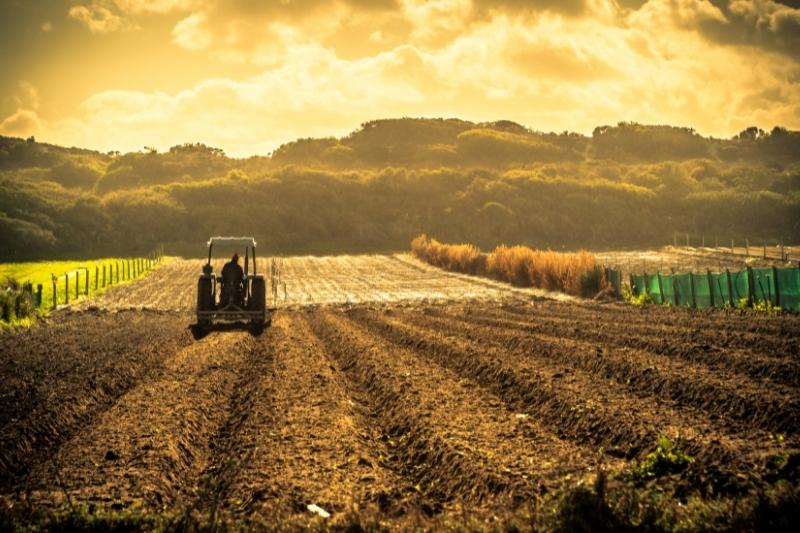IntensiveAgriculture
Intensive farming originated in the ancient civilizations of Egypt, Mesopotamia, India, Pakistan, North China, Mesoamerica, and Western South America with the creation of water management systems and the domestication of large animals that could pull plows. In more recent years, and especially since industrialization, intensive agriculture has also come to be characterized by a variety of other practices such as heavy pesticide use, rotational grazing, and concentrated animal feeding operations (CAFOs).
Together we can end factory farming.
%Animal Feed
% Vegetable oil


What Is Intensive Agriculture?
Intensive agriculture is a method of farming that uses large amounts of labor and investment to increase the yield of the land. In an industrialized society this typically means the use of pesticides, fertilizers, and other chemicals that boost yield, and the acquisition and use of machinery to aid planting, chemical application, and picking. In theory, this reduces the amount of land needed for an economically viable farm to grow crops or raise animals. However, in countries such as the United States and Canada these methods are often used to overproduce products as companies attempt to increase their market share. Profit is then diminished so that farmers must continue overproducing in order to stay economically viable, and often seek compensation for low profits via government subsidies.
Why Is Intensive Agriculture Bad?
Animal Cruelty
Billions of animals in the United States suffer on factory farms that employ intensive methods to increase profitability. Often they are confined in such small spaces that they can barely move. Standard procedures include debeaking, castration, tail docking, and dehorning. All of these frequently occur without sedation, causing large amounts of suffering and pain for the animals that endure them.
That’s why Sustainable Planet is a big believer of plant based protein
Deforestation
Because intensive agriculture has shifted from focusing on maximizing the productivity of small pieces of land to application on farms spanning thousands of acres, it can often drive deforestation even before one considers the sources of animal feed. Because the land must be easily accessible for planting, watering, and fertilizing, trees must be removed to create large expanses of flat land. Growing corn and soy to feed these animals is a leading cause of deforestation globally.
Water lentils do not need any agricultural land, we can even grow our water lentils in the desert.

Human Health
Exposure to the pesticides that intensive agriculture tends to use in large quantities can have a number of negative effects on human health. These include irritation to the skin and eyes and negative effects on the nervous and endocrine systems. The mismanagement of the large amounts of manure produced by CAFOs can also lead to health problems in surrounding communities.
Water lentils are the healthy plant on our planet. From Protein to all essential amino acids, everything is in our plant.

Pest and Weed Resistance
Following repeated application of a particular pesticide or herbicide, many pest species, both plant and animal, can build resistance. This often results in stronger chemicals being used to destroy the target species, or a larger amount or higher concentration of the chemicals being applied.
Sustainable Planet is not using any chemicals, all ingredients are natural.

Soil Degradation
Intensive farming contributes to soil degradation, as land tends to be planted on repeatedly without providing a break for the dirt to recover its nutrients. This often results in the increased use of fertilizers to make up for the lack of nutrients in the soil.
Sustainable Planet is not using any valuable agricultural land.

Water Pollution
Intensive farming methods contribute considerably to water pollution. Every year the animals on factory farms in the United States produce billions of gallons of waste. With nowhere else to go this waste tends to be stored in large cesspools and be sprayed over fields. Both of these systems of disposal result in water pollution, as the waste sinks into the groundwater or makes its way into rivers, lakes, or other bodies of water.
Sustainable Planet is not polluting any water.

Climate Change
The increase in intensive farming methods around the world was noted in 2020 as threatening the world’s chance of meeting the terms of the Paris agreement. Both the use of artificial fertilizers and the farming of animals—especially cows, who produce large quantities of methane and are often fed with grains farmed on deforested land—are causes of increasing emissions of greenhouse gases.
Water lentils are the only climate-positive plant on our planet. Water lentils act as a climate mitigation technology. They reduce CO2 emissions by 30g/sqm/day, which is 2,500 tCOe for the pilot project.
Sustainable Planet is not polluting any water.

Harm to Smaller Farms
The rise of intensive agriculture has dealt a serious blow to small farms. Because the larger, corporate enterprises can afford to produce crops and animals on a much larger scale, they are able to sell them for a lower market price while still being able to make a profit. Smaller farms, however, have been left behind, as they do not tend to produce enough to be able to accept such low prices. This has contributed to many farmers leaving the industry and further social effects for farming communities.
Sustainable Planet is different. For example, are we supporting small holding farmers. They are producing, with our guidance, raw material for our products. That helps them to increase their income or they get well paid jobs.

